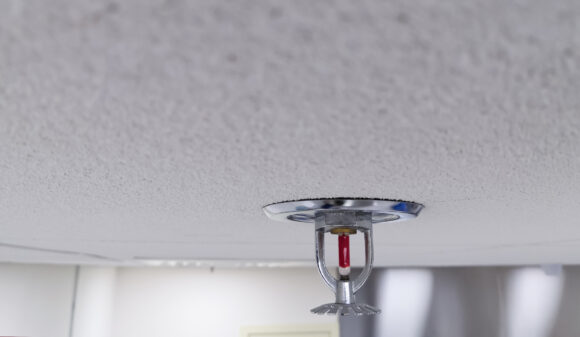Sathiyaselvam Thangavel’s hijinks with a drone caused more than $77,000 in damage to the apartment building where he lived, but his landlord’s insurer can’t recover that money from Thangavel even though he signed a lease saying he is solely responsible for any damage.
The Delaware Supreme Court ruled Tuesday that Thangavel was a co-insured under the property policy that Donegal issued to Seaford Apartment Ventures. Thangavel cannot be held liable for the damage absent a clear statement in the lease agreement that he cannot benefit from his landlord’s insurance policy, the court said in an opinion affirming a decision by the Superior Court.
“Residential landlords control the lease terms,” the unanimous opinion says. “If they want, they can clearly express a requirement that the tenants obtain fire insurance or notify them that they would not benefit from the landlord’s fire insurance policy.”
Donegal says it had to pay $77,704.06 to repair water damage after Thangavel flew a drone into a sprinkler head connected to a fire-protection system in his Seaford, Delaware apartment. The insurer sued Thangavel and his roommate, Sasikala Muthusamy seeking to recover the cost.
The two tenants filed a motion for summary judgment with the Superior Court pointing out a longstanding court precedent, called the Sutton rule after an Oklahoma Court of Appeals case, holding that tenants are co-insureds under the landlord’s fire insurance policy unless a tenant’s lease clearly expresses an intent to the contrary.
The Superior Court granted the motion. It noted three court cases where the Sutton rule had been adopted into Delaware case law. In each of those cases, the lease terms were substantially the same as Thangavel’s lease agreement.
On appeal, Donegal pointed to a 1999 decision in Deardorff Associates v. Brown that held a tenant was liable for fire damage caused by his own negligence. But the Supreme Court said Deardorff doesn’t apply because the lease agreement in that case expressly stated, in two separate provisions, that tenants would be held liable for any fire damage they caused.
The Seaford Apartment lease did not specifically address liability for fire or water damage caused by the tenant’s negligence, the opinion says. While other language in the Seaford apartment lease did address liability for water damage, Donegal did not raise that issue a trial and therefore waived those arguments, the court said.
“Finally, the Superior Court correctly observed that the policy considerations influencing the Lexington decision – recognizing the one-sided nature of residential leasing and protecting the parties’ typical expectations regarding the assignment of risk of loss – are served by applying the Sutton rule in this case,” the Supreme Court concluded.
Was this article valuable?
Here are more articles you may enjoy.


 Moody’s: LA Wildfires, US Catastrophes Drove Bulk of Global Insured Losses in 2025
Moody’s: LA Wildfires, US Catastrophes Drove Bulk of Global Insured Losses in 2025  Bayer to Make $10.5 Billion Push to Settle Roundup Cases
Bayer to Make $10.5 Billion Push to Settle Roundup Cases  NYC Travel Snarled by Snow as Central Park Gets 15 Inches
NYC Travel Snarled by Snow as Central Park Gets 15 Inches  Building Fortification And The Role of The Insurance Industry
Building Fortification And The Role of The Insurance Industry 